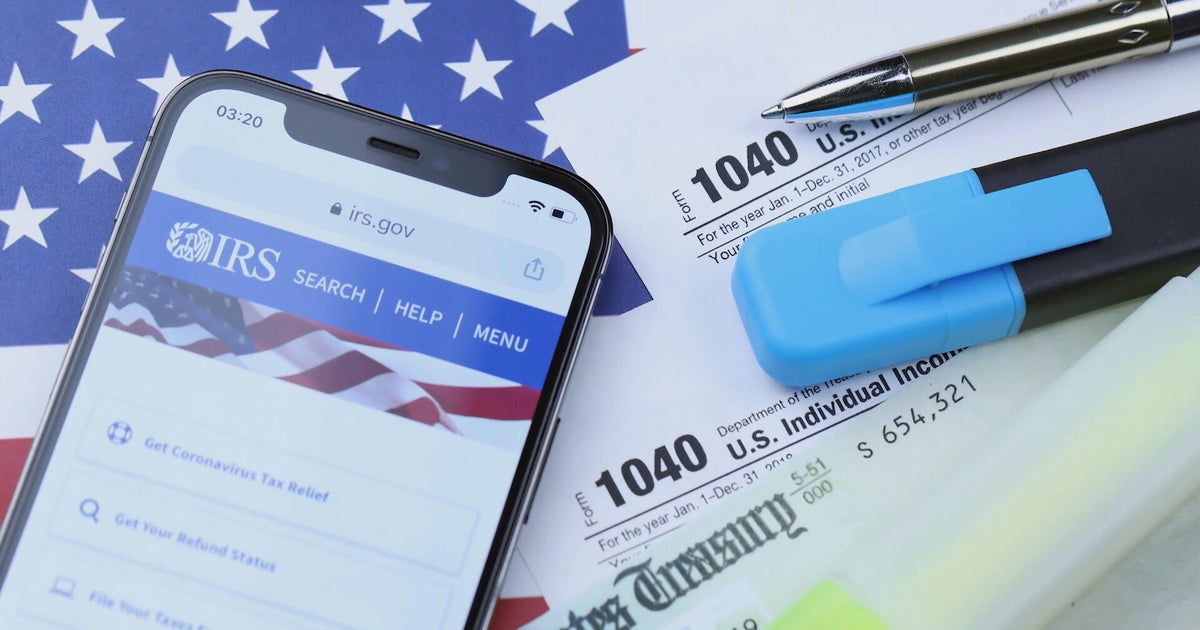Federal regulators want to know what Big Tech is doing with your financial data
The U.S. government wants major technology companies to explain how they're using customers' financial data, laying the groundwork for tighter privacy rules on mobile payment systems down the road.
The Consumer Financial Protection Bureau has ordered Apple, Amazon, Facebook, Google, PayPal and Square to reveal details of their proprietary payment networks, such as what data they collect and how they use it, how they resolve disputes and what consumer protections users have. It's the first significant action from the CFPB under its new director, Rohit Chopra, who helped launch the agency during the Obama administration.
The CFPB's order also raised antitrust concerns.
"[P]ayments businesses are network businesses and can gain tremendous scale and market power, potentially posing new risks and undermining fair competition," Chopra said in a statement. "Will the payment platforms be truly neutral, or will they use their scale to extract rents from market participants? Will small businesses feel coerced into participating in the payment platform out of fear of being suppressed or hidden in search or product listings?"
"The next frontier"
Payment systems created by Big Tech companies now dominate large portions of ecommerce and person-to-person payments. In the past decade, technology companies have rolled out full-featured payment systems and networks like Apple Pay, AliPay and Google Pay, which are often hardwired into smart devices. Meanwhile, Facebook and Google, which reached their sky-high valuations by developing and selling targeted advertising, are looking to diversify their income streams by becoming platforms for people to shop or send money.
"This is the next frontier for Big Tech platforms — they want to get into payments," said Matt Stoller, research director for the American Economic Liberties Project, a nonprofit that promotes competition.
"These companies are platforms, and they kick people off their platforms, and we know that from a speech standpoint ... . But as they go into payments, what are their policies there?" Stoller said.
Reams of user info collected
The order called out tech companies' extensive reliance on data and the possibility that they might use consumer-finance information for behavioral targeting.
So far, there is little understanding of how the reams of user information tech companies collect affect the digital finance tools these companies offer, said Pamela Dixon, founder and executive director of the World Privacy Forum.
"What kind of firewalls or partitions exist between the payment systems and the other systems? Is there any crossover of the data, any cross-referencing of financial data to other data? If so, the companies would have a really good view into [users'] purchasing," she said.
Consumer-spending information can offer intimate details about a person's life. For instance, a payment processor could market differently to a customer who spends a lot on food and clothing than it would to a user who only uses the service for a monthly payment labeled "rent." Tech companies could combine information on people's spending with data about their social connections and browsing history to market to individuals much more effectively.
"No one wants to be profiled on our financial data. I think a lot of people would prefer that their wallet information is private to them," Dixon said.
At the same time, mobile payment systems have revolutionized finance for many consumers, being especially useful to those who don't have access to traditional banking services. They've also ballooned in popularity during the past year, as many people have been wary of handling cash during coronavirus pandemic.
The CFPB's request is likely to lead to tighter rules for financial technology companies regarding consumer privacy, including allowing consumers the ability to restrict marketing or sale of their data, Jaret Seiberg, an analyst at Cowen & Co., said in a research note. Those rules would take several years to develop, he said.
Is Big Tech too big?
Before his confirmation last month as director of CFPB, Chopra was previously a commissioner at the Federal Trade Commission where he used his role to raise concerns about anticompetitive behavior at large technology firms. He raised the issue again during his confirmation hearing at the Senate Banking Committee, and so his tougher stance on regulation was largely expected.
The CFPB has revoked or scaled back a number of Trump administration policies. And the bureau is staffing up as it prepares to take a more active role in regulation and enforcement, as it did during the Obama administration.
Banks and consumer groups have also raised concerns about tech companies running their own independent payment networks. While banks have tried to compete with Silicon Valley through payment services like Zelle, they have struggled to keep up and do not have the integrated systems that Apple or Google operate, the Associated Press reported.
"Outside purview" of regulators
"Since the Bureau was founded, a growing share of banking activity has occurred outside of the purview of leading regulators, putting consumers and the resiliency of the financial system at risk," Richard Hunt, CEO of the Consumer Bankers Association, the trade group for the nation's big consumer banks, told the AP.
The CFPB's move is a positive for banks, said Seiberg, of Cowen & Co. "The banking system has undergone data privacy scrutiny for years," he said in a note. "We see similar scrutiny for big tech as a leveling of the playing field."
The CFPB will also examine payment systems from several Chinese technology companies, including Alipay and WeChat Pay, it said.
The Associated Press contributed reporting.



